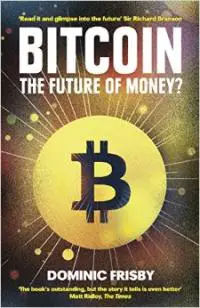Goodbye War On Drugs, Hello Libertarian Utopia. Dominic Frisby’s Bitcoin: The Future of Money?
 Now that bitcoin has subsided from speculative bubble to functioning currency (see the price chart below), it’s safe for non-speculators to explore the whole ‘cryptocurrency’ thing. So…is bitcoin or one of its growing list of competitors a useful addition to the average person’s array of bank accounts and credit cards – or is it a replacement for most of those things? And how does one make this transition?
Now that bitcoin has subsided from speculative bubble to functioning currency (see the price chart below), it’s safe for non-speculators to explore the whole ‘cryptocurrency’ thing. So…is bitcoin or one of its growing list of competitors a useful addition to the average person’s array of bank accounts and credit cards – or is it a replacement for most of those things? And how does one make this transition?
With his usual excellent timing, London-based financial writer/actor/stand-up comic Dominic Frisby has just released Bitcoin: The Future of Money? in which he explains all this in terms most readers will have no trouble following. As you’d expect from someone who uses words to amuse as well as educate, Frisby’s prose is informal and fluid and occasionally very funny, with lots of first-person anecdotes.
The message, however, is fairly serious: Bitcon is, just maybe, a new and better form of money, an emerging homo sapiens to the dollar’s Neanderthal. As such it’s potentially transformational.
So let’s start with a little background: Bitcoins are created (or mined) when computers solve certain kinds of mathematical puzzles. The number of bitcoins outstanding is designed to grow at a predetermined rate for a predetermined period, making its supply both limited and predictable (in contrast to fiat currencies that multiply at the whim of central bankers and politicians). And the currency can be transferred online quickly and cheaply, bypassing the traditional banking/credit card nexus.
Frisby spends the first half of his book telling the story of how bitcoin came to be, featuring the author’s attempts to track down the currency’s enigmatic creator, Satoshi Nakamoto (generally believed to be either an individual super-genius polymath or some sort of libertarian programmer collective). Frisby concludes that it’s the former and claims to have found him. You’ll have to read the book for that revelation.
This post was published at DollarCollapse on October 21, 2014.











 Follow on Twitter
Follow on Twitter